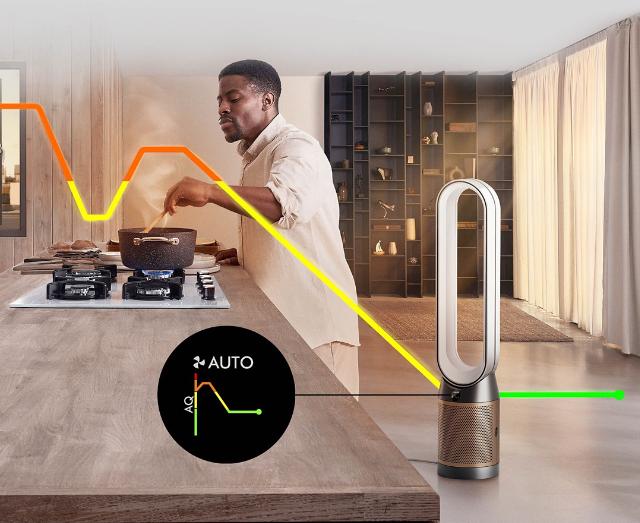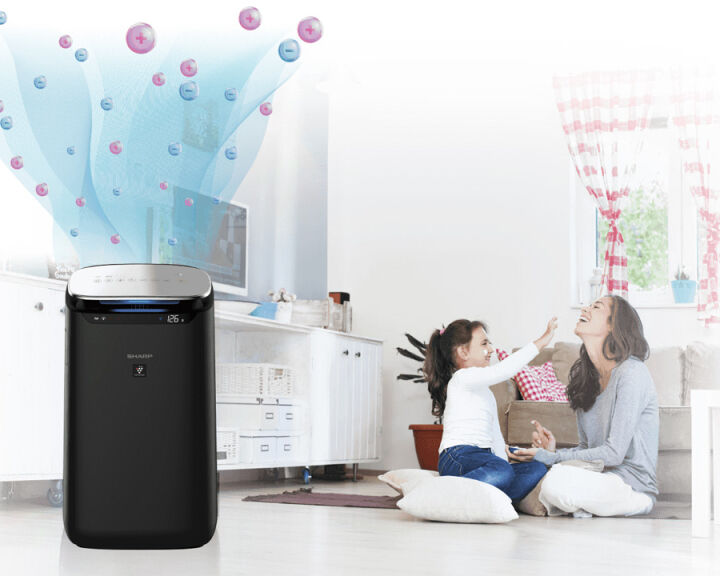Featured
Table of Contents
- – Recognizing Allergies and Triggers
- – Can Air Purifiers Assist with Allergies?
- – The Scientific Research Behind Air Purifiers ...
- – Are Air Purifiers Right for You? Variables to...
- – Making the Many of Air Purifiers for Allergies
- – Beyond Air Purifiers: A Multi-Pronged Strategy...
- – Living a Breath Easier Life with Allergies

Air purifiers are commonly proclaimed as a solution, promising cleaner air and alleviation from allergic reaction symptoms. Are air cleansers truly worth the investment for allergic reaction victims?
Recognizing Allergies and Triggers
To recognize the duty of air cleansers, allow's initial explore allergic reactions and their triggers:
- The Allergic Response: Allergies happen when your body immune system panics to a safe compound, like plant pollen or allergen. This reaction activates the launch of histamines, causing allergic reaction symptoms like sneezing, coughing, itchy eyes, and a dripping nose.
- Usual Allergens: Indoor allergens consist of allergen, animal dander, mold spores, plant pollen that drifts inside, and also cockroach allergens. These air-borne bits can aggravate your respiratory tracts and trigger allergy signs and symptoms.
Can Air Purifiers Assist with Allergies?
Air purifiers function by attracting air, straining pollutants, and launching cleaner air back right into the area. Below's how they can potentially benefit allergic reaction sufferers:
- Capturing Irritants: HEPA (High-Efficiency Particulate Air) filters, a typical kind used in air purifiers, are very efficient at capturing airborne allergens like allergen, animal dander, and plant pollen. By removing these triggers from the air you take a breath, air purifiers can aid lower allergic reaction signs.
- Improved Air High Quality: Air purifiers can likewise eliminate other irritants from the air, such as smoke, dirt, and unstable natural compounds (VOCs) This total renovation in air high quality can be beneficial for allergy victims who are sensitive to these additional triggers.
The Scientific Research Behind Air Purifiers and Allergies
Researches have actually revealed that air cleansers can be practical in reducing allergic reaction symptoms. Below's a check out some crucial research findings:
- A 2019 testimonial published in the journal "Present Allergic reaction and Asthma Reports" wrapped up that air cleansers with HEPA filters can be effective in reducing allergic reaction symptoms and enhancing lifestyle for individuals with sensitive rhinitis (hay fever)
- A 2018 research study released in the journal "Record of Allergy, Asthma & Immunology" discovered that making use of an air purifier with a HEPA filter in the room considerably minimized allergen irritant degrees and improved rest top quality in individuals with asthma.
Nevertheless, it is essential to keep in mind that research additionally recommends some constraints:
- Air Purifier Insurance Coverage: Air cleansers are most effective in the area where they are put. Their effect on allergens in other parts of your house might be marginal.
- Severity of Allergies: While air purifiers can help, they might not be a full remedy for extreme allergic reactions. Drugs and other allergic reaction administration strategies may still be required.
Are Air Purifiers Right for You? Variables to Take Into Consideration
Right here are some essential elements to think about when choosing if an air purifier is worth it for your allergies:
- Seriousness of Allergies: If your allergic reactions are light and well-controlled with medication, an air purifier could not be essential. For those with modest to extreme allergies, an air purifier can be a useful tool in taking care of signs.
- Kinds of Irritants: Consider the major triggers for your allergies. Air cleansers are most effective for airborne allergens like dirt mites, pet dog dander, and pollen. They may not be as useful for irritants like mold and mildew that expand on surfaces.
- Way of life and Environment: If you have animals, live in an area with high plant pollen counts, or have problems regarding interior air high quality, an air purifier can be helpful.
:max_bytes(150000):strip_icc()/SPR_CowayAirmega400SApp-EnabledSmartTechnologyAirPurifier_HW_004.jpg-efbf4db7757e43dbbec187d41a82aff7.jpg)
Making the Many of Air Purifiers for Allergies
If you determine to spend in an air purifier for allergies, below are some suggestions for optimizing its performance:
- Choose a HEPA Filter: Try to find an air purifier with a HEPA filter licensed to record fragments as little as 0.3 microns.
- Right Dimension for the Room: Ensure the air purifier has a Clean Air Distribution Rate (CADR) that appropriates for the dimension of the space you plan to utilize it in.
- Placement Matters: Position the air purifier in the area where you invest the most time, such as your room.
- Regular Filter Maintenance: Replace HEPA filters according to the maker's instructions to keep optimum efficiency.
- Integrate with Other Strategies: Air cleansers are not a one-size-fits-all service. Incorporate them with other allergic reaction monitoring approaches like medicine, regular cleansing, and allergen-proof bedding.
Beyond Air Purifiers: A Multi-Pronged Strategy to Allergy Management

While air purifiers can be an important tool in your allergy arsenal, they are not a magic bullet (If you're looking to buy an Air Purifier then Air Cleaners Australia is the best destination.). A thorough method that integrates air purification with other approaches is crucial to achieving long-term allergic reaction relief. Below are some added methods to consider:
- Medicine: Antihistamines, decongestants, and nasal corticosteroids, prescribed by your doctor, can properly manage allergic reaction signs and symptoms.
- Allergy Screening and Immunotherapy: Recognizing your specific irritants through allergy testing can lead the means for immunotherapy, a treatment that helps desensitize your immune system to irritants in time.
- Air Quality Management: Routine cleaning with a HEPA-filtered vacuum and allergen-specific cleaning items can substantially decrease allergen, family pet dander, and various other allergens in your home.
- Controlling Moisture: Mold and mildew prospers in damp settings. Utilizing a dehumidifier can help regulate moisture degrees and prevent mold and mildew growth, an usual indoor irritant.
- Way of life Adjustments: If you have hatreds pollen, staying inside your home during height pollen seasons and bathing after hanging out outdoors can help decrease direct exposure.
- Bed linens and Surfaces: Framing pillows and bed mattress in allergen-proof covers can significantly minimize allergen direct exposure. Routinely washing bedding in hot water helps eliminate irritants.
Living a Breath Easier Life with Allergies
Remember, handling allergic reactions is a constant procedure. By recognizing your triggers, carrying out a multi-pronged technique, and potentially integrating an air purifier right into your technique, you can dramatically lower allergy signs and take a breath much easier.
Added Considerations:
- Consulting a Doctor: If your allergic reactions are extreme or otherwise well-controlled with drug and way of living modifications, seek advice from a specialist for individualized recommendations.
- Air Quality Tracking: Take into consideration using an air quality screen to track irritant levels in your house and readjust your administration approaches appropriately.
- Long-Term Financial investment: A high quality air purifier can be a long-lasting investment in your health and wellness and health.
By taking an aggressive approach and embracing a mix of these approaches, you can produce a healthier and allergy-friendly setting, enabling you to delight in a breath simpler life.
Table of Contents
- – Recognizing Allergies and Triggers
- – Can Air Purifiers Assist with Allergies?
- – The Scientific Research Behind Air Purifiers ...
- – Are Air Purifiers Right for You? Variables to...
- – Making the Many of Air Purifiers for Allergies
- – Beyond Air Purifiers: A Multi-Pronged Strategy...
- – Living a Breath Easier Life with Allergies
Latest Posts
The smart Trick of Can Yeti Ramblers Be Safely Washed In The Dishwasher? That Nobody is Discussing
The Main Principles Of Is Washing Yeti Ramblers In The Dishwasher A Good Idea?
Comprehending the Shift: Why Lane Cove is Phasing Out Gas
More
Latest Posts
The smart Trick of Can Yeti Ramblers Be Safely Washed In The Dishwasher? That Nobody is Discussing
The Main Principles Of Is Washing Yeti Ramblers In The Dishwasher A Good Idea?
Comprehending the Shift: Why Lane Cove is Phasing Out Gas